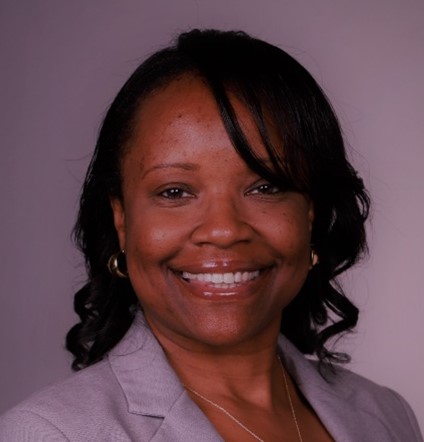
MBA Affordable Housing Partner Spotlight: Loretta Williamson of Truist
(One in a recurring series about MBA CONVERGENCE, the Mortgage Bankers Association’s
affordable housing initiative.)
Loretta Williamson is Senior Vice President and Director of Inclusive Lending for Real Estate Lending at Truist. She leads a team responsible for driving forward-thinking strategies that promote intentional growth in underpenetrated segments of the housing market, inclusive of first-time homebuyers, low- and moderate- income borrowers, the emerging majority, Veterans, borrowers with limited English proficiency and all borrowers across the socio-economic spectrum. Loretta is also responsible for building Truist’s Inclusive Lending vision as the market changes to maintain competitiveness and increase market share growth.
Williamson is also an active member of MBA’s Affordable Homeownership Advisory Council.
MBA Newslink: How did you get involved in mortgage banking? Why is housing affordability important to you?

Loretta Williamson: I have been in the Mortgage Banking industry for over 25 years, and I started in the telemarketing industry accepting mortgage applications over the phone. I then went on to work for a small broker to process mortgage loans and that began my journey in the mortgage banking industry. I started from the ground up in mortgage operations, which provided me with a wealth of knowledge about the homebuying process and a unique understanding of how important the execution of the operations process is for the borrower’s experience.
Housing affordability became important to me during my early years in this industry. The first closing I attended was with a borrower who wanted to send her granddaughter to college, and she was the first in their family to have the opportunity. She was on a fixed income; however, she had equity in her home and needed a loan within her budget to pay for her granddaughter’s tuition. After her closing, she was so grateful for the help she received, and I saw firsthand of how affordability played a major role for most borrowers.
MBA Newslink: What innovative solutions do you believe could address some of the barriers to affordable and equitable housing?
Loretta Williamson: I believe there have been some good strides with addressing the barriers to affordable and equitable housing such as the use of down payment assistance programs and Special Purpose Credit Programs. I would like to see the industry create more options to serve borrowers with non-traditional credit and provide more flexibility with credit score criteria.
When other credit parameters such as an excellent rental payment history, no collections or charge-offs and funds for reserves are met, this creates compensating factors to mitigate risk. Providing innovative solutions to access credit must be an on-going focus to reduce existing barriers and preventing new ones.
MBA Newslink: What strategies can be implemented to ensure the long-term sustainability and preservation of existing affordable housing stock?
Loretta Williamson: Affordable housing supply continues to be a growing issue in the mortgage industry and creating strategies that preserve the existing housing supply is important. Research has shown that preserving existing affordable housing is more cost-effective than new construction, with new construction homes becoming less affordable. Programs that provide renovation/rehabilitation solutions are more viable for many borrowers.
Preserving the existing housing supply also has many benefits including enhancing generational wealth by maintaining or increasing property values and keeping families and communities intact. Finally, any strategy to preserve the affordable housing supply must include intentional collaboration between government, state, and local organizations inclusive of policies, grants, education, and awareness to promote preservation solutions that will help our communities thrive.
MBA Newslink: What role does MBA play in supporting affordable, equitable and sustainable housing?
Loretta Williamson: The MBAs Affordable Housing initiative launched in 2019 is one way the MBA plays a role and within that initiative there are three Advisory Councils- Affordable Rental, Affordable Homeownership and Consumer Affairs. Each of these councils connects with the industry to collaborate on solutions that support affordable, equitable and sustainable housing. CONVERGENCE is another way the MBA supports these efforts. Truist is proud to be a partner with the MBA and participate in the Affordable Homeownership Advisory Council and the Consumer Affairs Advisory Council.
CONVERGENCE is driving collective action with lenders, other industry participants and government partners to facilitate new solutions to our nation’s rental and housing affordability challenges. By using a cohesive approach, CONVERGENCE promotes more sustainable, affordable homes for purchase and rental for underserved people and communities, especially minorities and low-to-moderate-income Americans.
For more information, visit https://www.mba.org/advocacy-and-policy/convergence or contact affordablehousing@mba.org.
